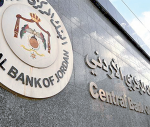You are here
Creating extra revenues without taxes: is it possible?
Dec 09,2015 - Last updated at Dec 09,2015
The economy of Jordan, no doubt, faces several challenges — some more serious than others. Hence, it is of paramount importance to approach these challenges with a strategic, creative and out-of-the-box mentality.
Take the public debt for example — both internal and external — which has reached a record high of JD24 billion. Borrowing, as such, is not a flaw, but it becomes so when we do not achieve our goals and targets that lead to borrowing. Despite the outstanding debt, the general budget still overwhelmingly consumed by current expenditure at the expense of the capital or investment components. Rehabilitation of infrastructure is not sufficient and our capability to maintain it is eroding. Reluctance and delays in exploiting renewable energy sources that are abundant in Jordan, force us to rely on costly imported heavy fuel and gas, which in turn further worsen our debt situation. The cost of power, an important element in any business or investment plan, has been a deterrent to investors, both local and foreign. We may also add that the international community and donor countries came short, very short in fact, in meeting their obligations towards the influx of Syrian refugees to Jordan and left the country facing an insurmountable challenge of providing for almost 1.5 million refugees. All the above lead to what we call a “twin deficit”.
Having said that, it is not impossible to get out of this dilemma, and one may propose, at the risk of outright rejection from traditional thinkers, the following:
- Enacting the decentralisation law without delay would enhance redistribution of national income among regions on a more just basis. Such a participatory approach, coupled with a comprehensive development programme, would increase production and productivity in the development zones, create new projects and jobs, and thus generate extra budgetary revenues.
- Revisiting salary and wage scales for all employees in both the public and the private sectors, despite being controversial, would reinforce the public’s purchasing power, and thus generate extra revenues through sales tax.
- A comprehensive plan to adopt a smart national ID for citizens would channel subsidies only to those qualified to receive them. This would reduce subsidies by exclusion of the undeserved.
- Debt service has reached alarming levels and poses a heavy and straining burden on the budget. Restructuring debt would reduce such a fiscal drag.
- Administrative flaccidity, red tape and corruption must be checked. Lack of enthusiasm among public employees is disastrous to the government’s efforts to enhance productivity and service provision to the public.
- Stability and consistency of investment legislation is a prerequisite for encouraging and attracting not just foreign investors to invest in Jordan, but to lure back Jordanian investors as well.
- Revising tax collection procedures, in addition to a broader income tax base, would enhance revenues, not forgetting of course a more efficient collection of arrear dues.
- Tourism needs a complete and revised strategy to be able to compete with other destinations in the region such as Turkey and Egypt. For instance, during a seminar held by the Economic and Social Council (ESC) a couple of weeks ago, the Chinese ambassador in Amman suggested abolishing visa fees for tourists and reducing sales tax in tourist areas to attract visitors from Asia. This request was also put to the government by the tourism industry.
- In the light of the unemployment rates, education and training, in general, must be revised to make them compatible with labour market requirements. The ESC is in the process of finalising a strategic plan to create a public-private partnership venture to train and employ young Jordanians, both male and female, who are crowded out by guest workers. Such job creation would no doubt check unemployment and generate revenues.
- In the field of small- and medium-sized enterprises (SMEs), we need to look seriously at problems they are facing other than just finance. Finance is not their major problem now; they need capable and suitable manpower and training, not only for labour, but also for business owners.
- Maybe it is high time to start thinking of new methods of financing mega-transportation projects such as highways and railroads through public-private partnerships.
- Removing obstacles of developing judicial procedures to make litigation faster would enhance growth and development. Some business litigation cases take years to be resolved to the dismay of industrialists and investors.
- Rural and Badia development plans have to be restructured in a more innovative way through the participatory involvement of local communities. This must be viewed as a job creator and income generator for both people and government.
The list above was not meant to be complete or exclusive, but a brainstorming exercise. Each item needs a workshop on its own.
The writer is president of the Economic and Social Council. He contributed this article to The Jordan Times.













